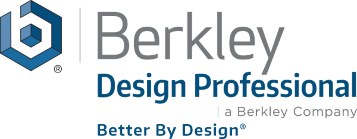
Presented by:
Brian Sutter, ESQ. Managing Partner, Sugarman Law Firm LLP
Stephen Davoli, ESQ. Partner, Sugarman Law Firm LLP
Andrew D. Mendelson, FAIA, Senior Vice President, Chief Risk Management Officer, Berkley Design Professional
Tuesday, March 22, 2022
10:00 am – 11:15 am Pacific Daylight Time
1.25 AIA Learning Units
1.25 RCEP Professional Development Hours
Health Safety and Welfare Qualified
Berkley DP policyholders who participate in this program can qualify for a 15% Risk Management Education credit. Contact your agent for further information*
This webinar has been recorded and is available on demand for Berkley Design Professional policyholders and our appointed agents and brokers on the BDP Risk® Learning Management System.
bdp Risk® lms loginEthical behavior is integral to the practice of architecture and engineering, necessitated by the professional’s duty to protect the health, safety, and welfare of the public. Making decisions and taking action can be complicated by ethical obligations imposed by multiple bodies: professional association codes of conduct, state practice acts, and licensing board requirements. Using professional association codes of conduct as a framework, this workshop offers a four-step process to make sound ethical decisions and explores real-life ethical cases to illustrate the challenges, dilemmas, and consequences of unethical behavior. In addition, participants will take away six key strategies to avoid ethical problems.
In this webinar, you’ll:
- Identify ethical codes, rules, and regulations applicable to design professionals
- Recognize common professional misconduct/ethical situations, including fraud and dishonesty, obligations to report certain conduct, improper sealing of documents, and conflicts of interest; and determine the potential repercussions of the failure to act in a manner consistent with professional standards of ethics and conduct
- Learn the four-step process to evaluate situations and make ethical decisions: 1) FACTS—who is affected and how; 2) ANALYSIS—positives, negatives, fairness; 3) DECISION—based on the most positive outcome; and 4) TEST—What would another ethical person say? How would the public respond?
- Acquire strategies to avoid ethical problems including: educating your team on ethical codes and rules, designating an ethics officer, routinely reviewing projects for ethical issues, and establishing a system to prevent conflicts of interest with clients
- And more…
Earn Learning Units
This program is registered for:
Submitted for AIA CES Approval
1.25 RCEP Professional Development Hours
This webinar has been recorded and is available on demand for Berkley Design Professional policyholders and our appointed agents and brokers on the BDP Risk® Learning Management System.
bdp Risk® lms login*Each policy year, firms that participate in one or more Berkley DP education programs qualify for a single 15% risk management education credit that will be included in rating and reflected in the firm’s next policy quotation. Please note that the education credit opportunity applies only to primary policies; excess policies are not eligible.

